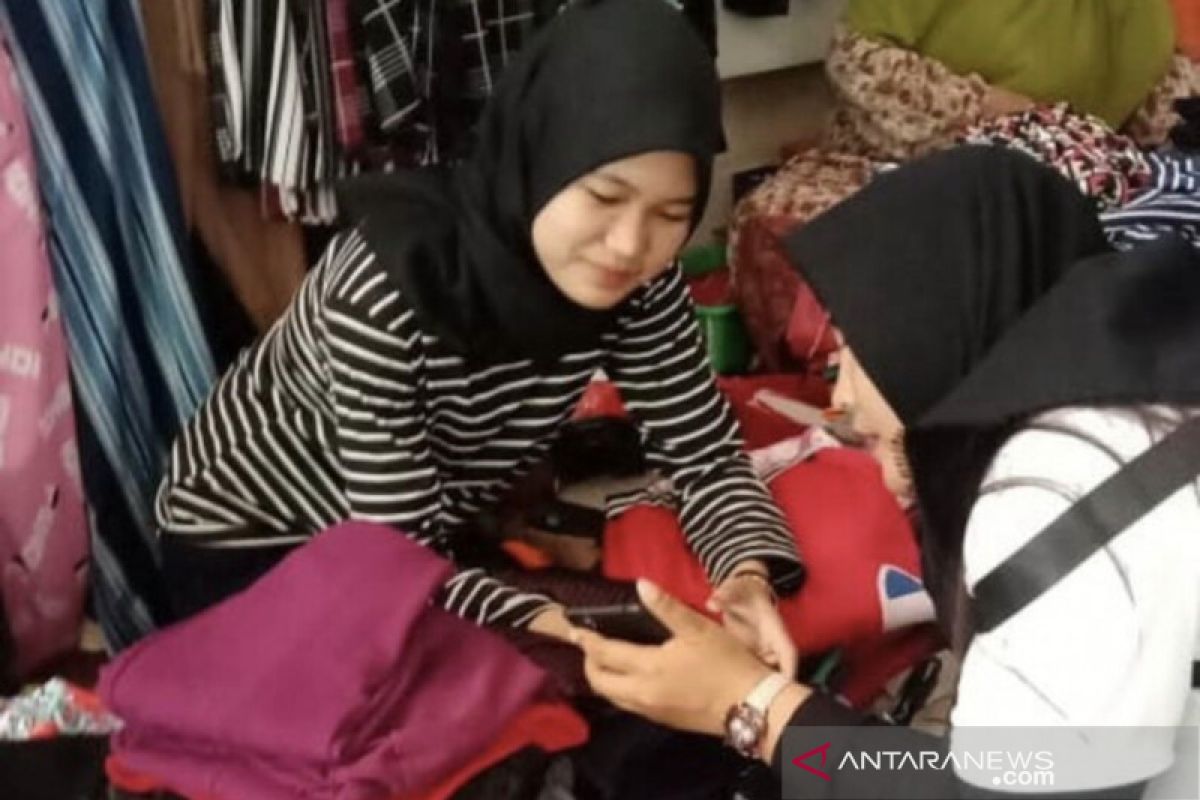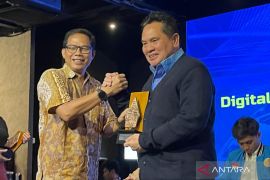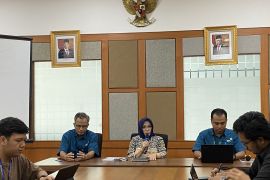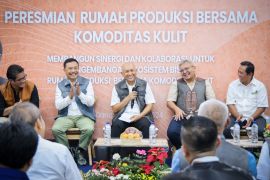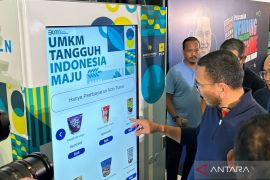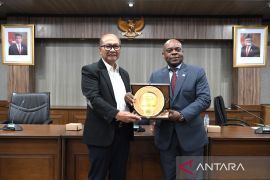However, doing so is not as easy as flipping a coin owing to the low technological familiarity among MSMEs.
Even so, MSMEs are required to capitalize on digital applications in order to boost revenues and grow.
To this end, the Digital Economy Directorate, Informatics Application Directorate General, and the Ministry of Communication and Informatics (Kominfo) are guiding 26 thousand MSMEs located in Indonesia's 10 priority tourism destinations to help them become more proficient in the use of digital platforms.
The six-month-long assistance, which is part of Kominfo's three-point agenda for Indonesia's MSME development, includes provision of facilitator guidance, training centers, data package aid, marketplace aggregator applications, cashier applications (POS - Point of Sales), and online learning applications.
Related news: Assist Indonesia's MSMEs to produce standardised face masks: Indef
Kominfo's digital economy plt. director, I Nyoman Adhiarna, stated that the ministry had prepared a three-point agenda for Indonesia's MSMEs that encompassed on-boarding, active-selling, and scaling-up, with the objective of developing MSMEs further.
MSMEs are being encouraged to open their own online shops as part of the on-boarding process. As part of active-selling, they are being offered help to boost their business activities across various digital platforms.
MSMEs are getting help to develop their business with the scale-up program.
Through such endeavors, the 10 priority tourism destinations will become more advanced and capable of competing in the international market.
The 10 priority tourism destinations comprise Toba Lake in North Sumatra, Tanjung Kelayang in Bangka Belitung, Mandalika in West Nusa Tenggara, Wakatobi in Southeast Sulawesi, Morotai in North Maluku, Thousand Islands in Jakarta, Tanjung Lesung in Banten, Borobudur in Central Java, Bromo in East Java, and Labuan Bajo in East Nusa Tenggara. Each of these regions have around 2,600 MSMEs.
Related news: Govt prepares regulation to halt sales of imported MSME products
Thus, for a six-month period, from July to December 2021, around 26 thousand MSMEs will be guided in their digital adoption process.
Through the guidance, MSMEs are expected to boost their online stores in the marketplace by uploading photographs and descriptions of their products, interacting with potential customers, and also conducting transactions in the marketplace.
The MSMEs are receiving training in areas, such as the utilization of social media, e-commerce, financial technology, POS application, and 4.0 technology.
In addition, the MSMEs are being offered a marketplace aggregator application facility to ease the monitoring of online store activities across several marketplaces. They are also receiving guidance on the use of the POS application, so that their transaction processes are properly recorded.
MSMEs can use the two applications free of charge during the six months of training. MSMEs are also receiving data package facilities to access digital platforms.
As onboarding MSMEs to the digital platform is not an easy task, facilitators are being deployed to guide MSMEs, both online and offline.
During his field observation, Kominfo's MSME digital technology adoption coordinator, Sumarno, stressed that facilitators have received training and are ready to guide MSMEs, both online and offline.
Related news: MSME loan growth exceeds total credit: BI
Offline guidance is being provided at training centers that have facilities, such as Wi-Fi and laptops, in every region. However, in the event of any difficulty encountered in reaching the training center, the facilitators will visit the MSME's business location or home.
Special Internet hotspots have been set up at several locations for MSMEs whose businesses are located far from training centers.
The program is being further supported by a marketing campaign to raise citizens' awareness. The campaigns are being conducted through local radio stations in several areas that reach all corners of the regions to encourage MSMEs to make use of the training program to develop their businesses through the utilization of digital applications.
The awareness campaign is also targeted at related stakeholders, so that they can push the development of MSMEs in their respective regions.
Concurrently, as the guidance program, Kominfo is also conducting online and offline surveys of 37 thousand MSMEs in the producer and processing sectors.
The survey aims to update data related to the utilization of digital technology by MSMEs that will serve as a basis for the implementation of the next program.
In the previous year, an attempt was made to facilitate digital on-boarding of merchants in traditional markets within these 10 locations. The program managed to on-board 20 thousand MSMEs within these traditional markets.
Sub-coordinator of Kominfo's analysis and survey of MSMEs impact, Puti Adella Elvina, stated that the program is being continued this year, so that MSMEs will become more active in the online market and gain greater proficiency in using digital applications to conduct their businesses more effectively and efficiently.
Hopes are pinned on the implementation of the program not only benefiting MSMEs in this digital age but also boosting Indonesia's economy.
The COVID-19 pandemic has impacted the Indonesian economy, especially after the implementation of PPKM that is being enforced to prioritize public health.
Related news: Indonesia succeeds as biodiesel pioneer: ESDM Ministry
Related news: Ministry ensures operational readiness of Gresik-Semarang gas pipeline
Editor: Fardah Assegaf
Copyright © ANTARA 2021
